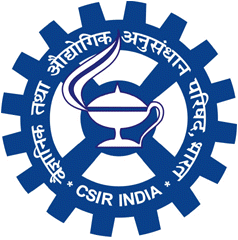Treatments Focus
Seizure

If you or a loved one has ever had a seizure, you know how intense, frightening, and perplexing the experience can be. It is, however, not as dangerous as you might think. In fact, seizures are so common that up to 10% of people worldwide will experience at least one seizure at some point in their lifetime. Yet, having one seizure does not indicate that you have epilepsy, even if they are closely related.
A seizure is a temporary disturbance in the brain’s electric activity that causes dramatic or no symptoms. It’s a complex neurological event with various possible causes. There are nearly 29 different types of seizures, which are often difficult to distinguish due to the time span for which they occur. But, understanding everything about seizures is essential for improving your overall health and wellness.
Symptoms of Seizure
Symptoms of seizures usually vary depending on the type. Some general warning signs and symptoms of an episode include:
Abnormal jerky movements of arms and legs
Loss of consciousness
Frothing or drooling from the mouth
Urinary incontinence
Stiffening of body
Loss of balance
Blank starring
Psychic symptoms (such as fear, anxiety, or a feeling of déjà vu)
Weird feeling in the stomach
Repetitive, uncontrolled movements such as lip-smacking, chewing motion, and rubbing hands
Confusion and extreme tiredness after a seizure
In most cases, symptoms appear quickly and vanish in a few seconds. In others, they stay for several minutes. However, if the symptoms last for more than 5 minutes, consider it a medical emergency and call an ambulance right away.
Triggers of Seizure
Seizures are unpredictable and can affect anyone with no indication of their cause. Although each person has their own set of triggers, some things or situations that affect the brain to bring on a convulsive event include:
- Head injuries
- Genetic disorder
- Improper sleep schedule
- Extreme stress
- Use of recreational drugs like cocaine and heroin
- Alcohol abuse or withdrawal
- Epilepsy
- Birth defects
- Brain injury during birth
- Brain cancer
- Brain infections like meningitis
- Stroke
- Uncontrolled fever
- Hormonal changes during monthly periods
- Some prescription medications (anti-depressants, benzodiazepine, anti-histamine, etc.)
- Abnormal blood glucose and electrolyte levels
Diagnosis and Treatment
Identifying the type of seizure a person has can be tricky. So before making a diagnosis, your doctor may take a complete medical history and the episode you experienced to determine the pattern of occurrence. Your doctor may also perform a neurological exam and order EEG, PET, MRI scan, and other blood tests as part of your complete evaluation.
Usually, a random seizure doesn’t require treatment unless it has occurred more than 2 to 3 times. Your doctor will be then likely to prescribe specific treatments based on your medical evaluation, which include:
- Anti-convulsant medications
- Surgery
- Vagal nerve stimulation
- Deep brain stimulation (Lobectomy)
- Dietary therapy (mostly recommended for children)
Keep in mind that seizures are manageable—if you know what causes them. You may want to work with your doctor to prevent the occurrence and improve your quality of life.
FAQ's :
References:
- Epilepsy. Retrieved May 16, 2022, from https://www.who.int/news-room/fact-sheets/detail/epilepsy
- 5 Things You Need to Know About Seizures. Northwestern Medicine. Retrieved May 16, 2022, from https://www.nm.org/healthbeat/healthy-tips/5-things-you-need-to-know-about-seizures
- Understanding Seizures: Everything You Need to Know. Seer Medical. https://seermedical.com/blog/ultimate-guide-to-seizures/
- What You Should Know About Seizures. (2021, October 14). Healthline. https://www.healthline.com/health/seizures
- The Epilepsies and Seizures: Hope Through Research | National Institute of Neurological Disorders and Stroke. Retrieved May 15, 2022, from https://www.ninds.nih.gov/health-information/patient-caregiver-education/hope-through-research/epilepsies-and-seizures-hope-through-research
- Wang, J., Lin, Z.-J., Liu, L., Xu, H.-Q., Shi, Y.-W., Yi, Y.-H., He, N., & Liao, W.-P. (2017). Epilepsy-associated genes. Seizure, 44, 11–20. https://doi.org/10.1016/j.seizure.2016.11.030
- Sheidley, B. R., Malinowski, J., Bergner, A. L., Bier, L., Gloss, D. S., Mu, W., Mulhern, M. M., Partack, E. J., & Poduri, A. (2022). Genetic testing for the epilepsies: A systematic review. Epilepsia, 63(2), 375–387. https://doi.org/10.1111/epi.17141
- Poduri, A. (2017). When Should Genetic Testing Be Performed in Epilepsy Patients? Epilepsy Currents, 17(1), 16–22. https://doi.org/10.5698/1535-7511-17.1.16
- Ritter, D. M., & Holland, K. (2020). Genetic Testing in Epilepsy. Seminars in Neurology, 40(06), 730–738. https://doi.org/10.1055/s-0040-1719070
Related Articles
Book an Appointment to understand how GenepoweRx can help you in treating
Seizure
Meet The Doctors
Dr Kalyan Uppaluri
Dr Hima Challa
Your genetics … Your Test ... Your Health Success
It’s always the word of mouth that’s the best advice. Here are some of our…


Our Partners






Professional Partnerships
Government Association

